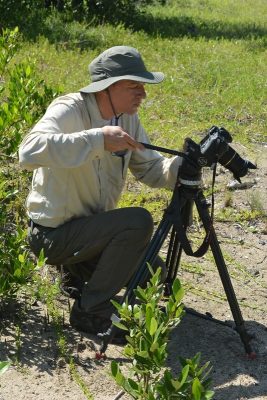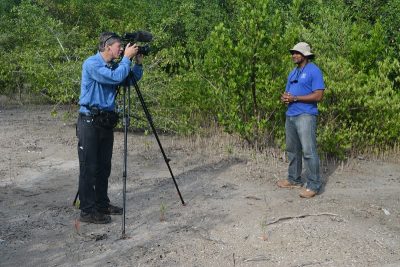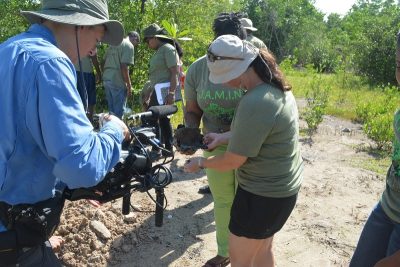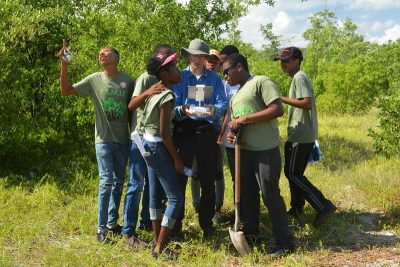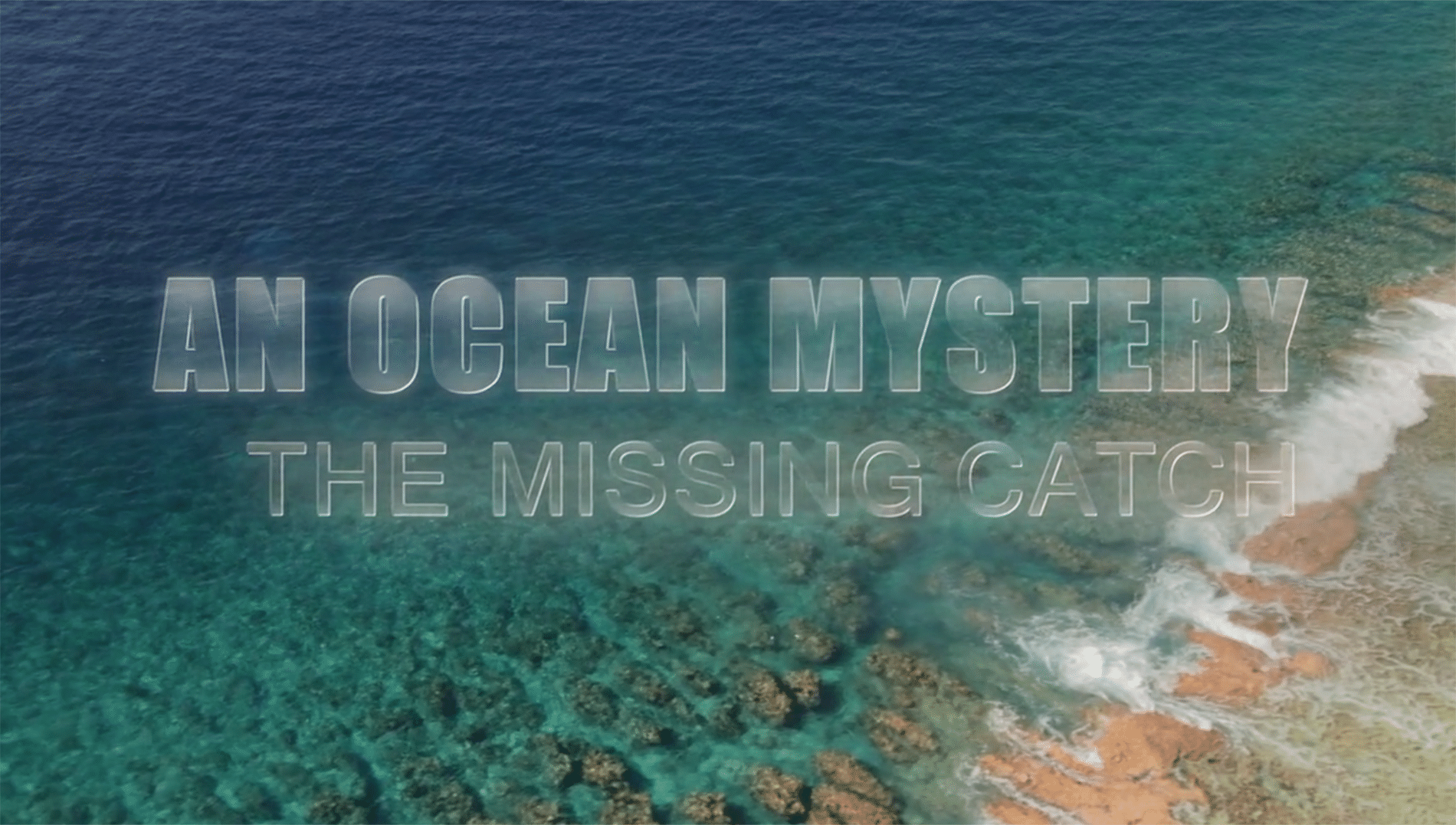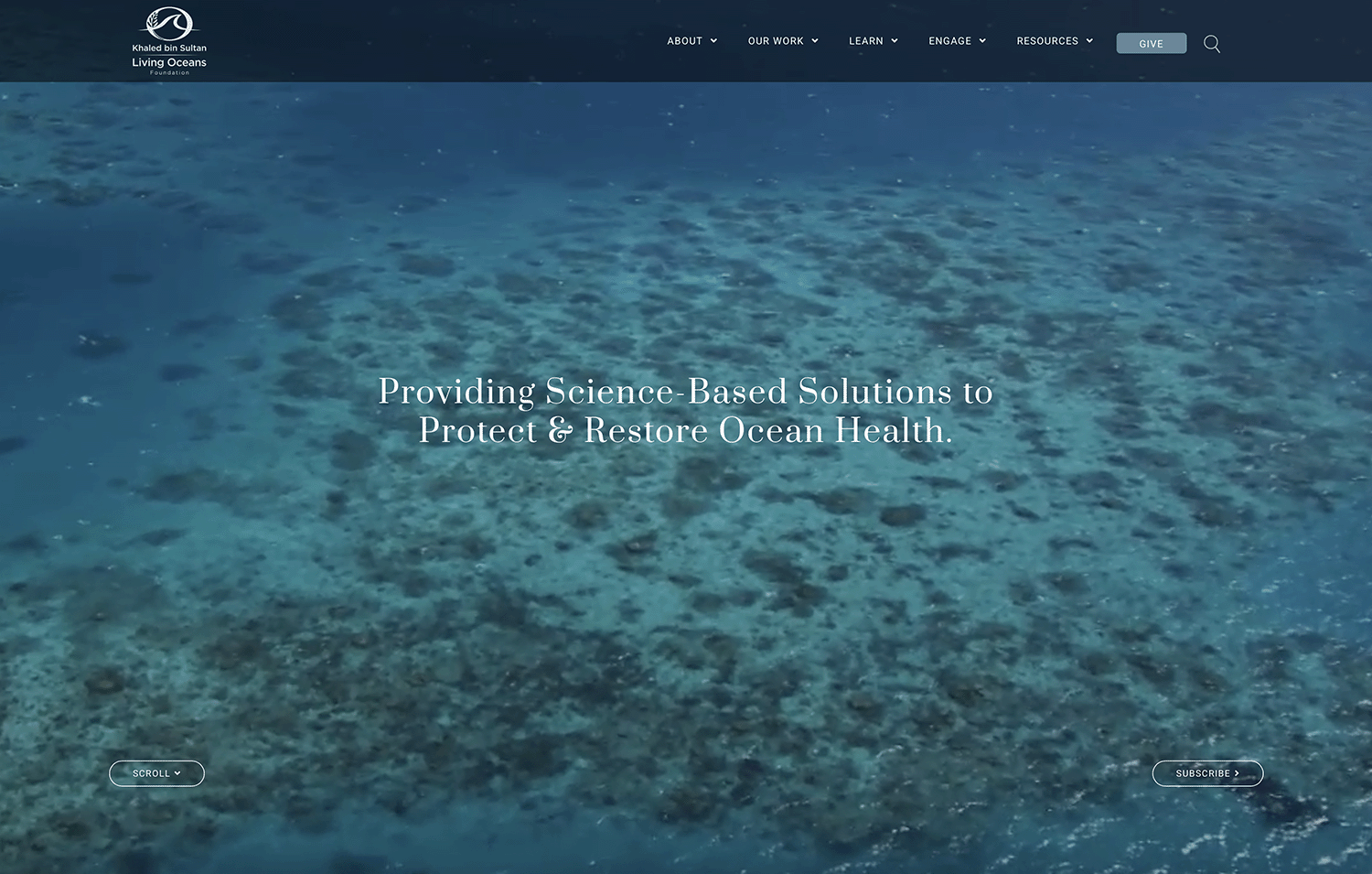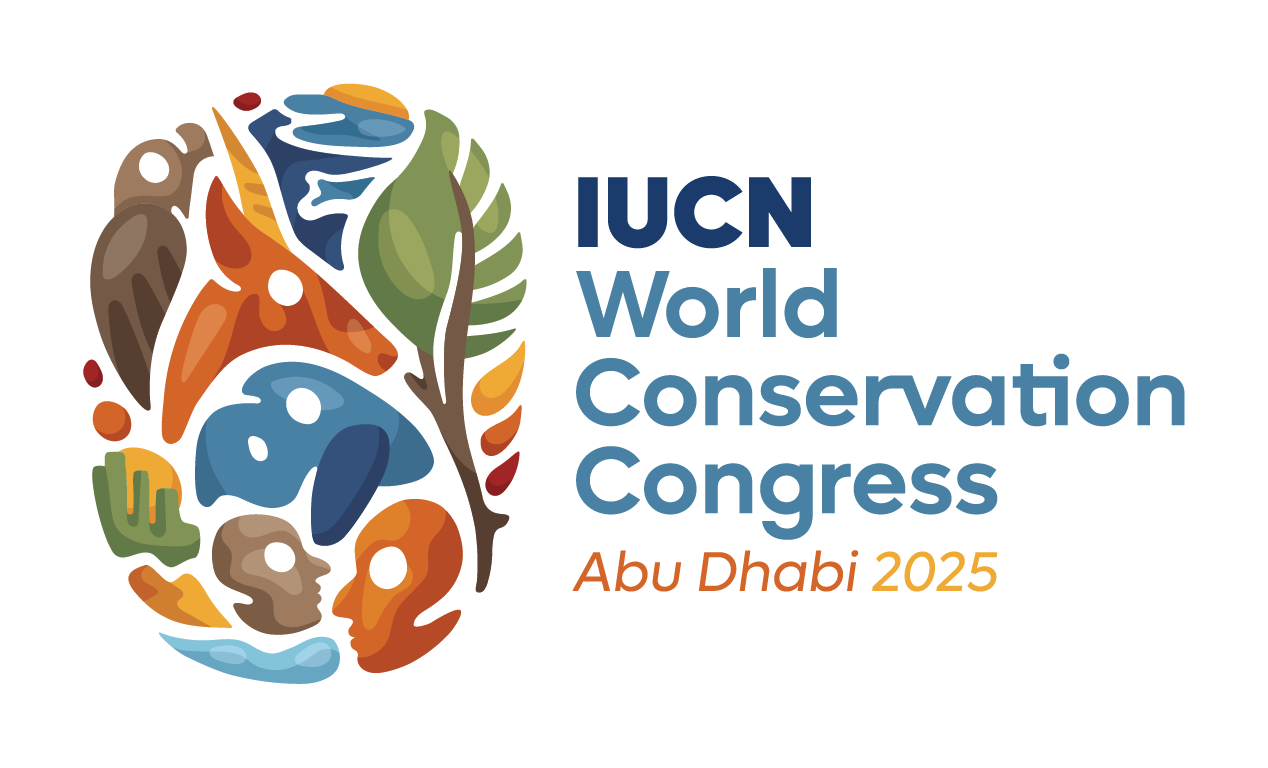Mangrove Education and Restoration Blog
You’ve done a lot of natural history or environmental films, what does a natural history filmmaker do?
As natural history filmmakers, we try to capture and show the natural world in its most pristine form. A growing portion of the world’s population hasn’t experienced nature unchanged by humans, and I think nature filmmakers try to give viewers that unaltered – or as close to being unaltered – perspective. We also try to teach people about the natural world – why it’s important, how’s it’s interconnected, and sometimes, what’s going wrong with it.
Why did you focus on natural history as a filmmaker?
When I was young, my family went camping several times each year; and I can remember how cool it was to walk through the woods – seeing the wild variety of animals and plants, hearing the sounds of the forest, smelling the different smells in all the places we visited – and I could feel a connection. As I grew up and became a filmmaker, those early experiences became a core part of me, and a core part of what I wanted to do with my career. I guess I wanted to show other people the things I’d experienced out in nature.
What is the most exciting thing that you have experienced in your job?
Oh that’s easy, witnessing a human baby being born and taking its first breath –a very natural event, right? Although we were focused on filming, there was this jolt that went through our film crew when the baby started crying. Nothing reminds you of what it is to be a human more than seeing a brand new baby in the first few seconds after emerging. The cycle of life, right there in front of you, it was electrifying.
What advice would you give to students interested in becoming a natural history filmmaker?
Just go out there and start making films, that’s the best way to learn, by doing it. You’ll make lots of mistakes, but you’ll learn from those mistakes, just like every other filmmaker has, and your films will get better and better. Let your passion drive you – if you like birds, make a film about birds, if you like snakes, make a film about snakes, if you like the ocean – you’ll always put more of yourself into a subject that you love.
Next, watch other films, – study what kinds of shots they got, how they put them together, what style of writing they used, what type of music they mixed in. Think about how you felt during parts of the film and figure out why. It’s really useful to see how another filmmaker approached a subject.
Third, I’ll bet there’s a local filmmaker in your area making a film right now. Seek out that person, and try to volunteer with them. You’ll learn a lot just by being around a film getting made – especially ways to overcome the problems that always pop up in filmmaking.
For the schooling part of learning to make films, definitely take writing courses. Almost every film will have some sort of writing in it, and the better writer you are, the better your films will be. Also don’t forget to take science courses, most nature filmmakers have a basic understanding of a range of sciences like biology, geology, chemistry, and physics.
It’s a great time to be a filmmaker, the tools are so much cheaper – a cellphone and free editing software will get you started. I wish it had been this way when I was younger!
Who inspires you in your career (and why)?
Scientists in general inspire me. They’ll work for years sometimes — trying to figure out how something works, why something works, how something fits together with something else — all the while not knowing if they’ll ever find an answer.
If I had to pick one person, I’d probably choose Neil DeGrasse Tyson –he’s inspiring because he’s able to take complex science concepts and translate them for people who might not have had a lot of science — and he makes it sound cool. It’s a great talent, and I love watching his shows. As a filmmaker, he does what I try to do in every film, explain something in such a way that people stop and learn something.
What was the last film you worked on?
Over the past summer, I worked on a film about overfishing. A scientist named Daniel Pauly and his team suspects that we’ve taken a whole lot more fish from the oceans than we thought we had, and that globally, fish stocks might be in pretty bad shape. Considering that about 2 billion people rely on fish for food, this obviously could be a major problem.
What it the most important lesson that you have learned in your career?
Mix up your career as you get older. Making films with the same type of subjects or styles from year to year can get tiring, even boring, so choose some different films to make. In my career, I’ve done quite a few natural history films, but I’ve also done films on military, historical and political subjects, and each one presents a different type of challenge. Mixing it up can also mean choosing different roles, so spend time as a cameraperson, an editor, a writer; changing up all these roles will keep you sharp, and make you a better filmmaker.
One last thing: “There are always options in filmmaking.” A mentor of mine told me that a long time ago, and it’s true. There are always ways to overcome challenges or obstacles while making films, either creatively or technically. The options may not be immediately obvious or they might not be perfect, but there are always options.

